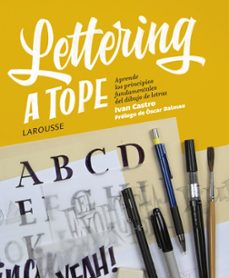📗 Libro en inglés THE DESIGN OF EVERYDAY THINGS
BASIC BOOKS- 9780465050659
Sinopsis de THE DESIGN OF EVERYDAY THINGS
Even the smartest among us can feel inept as we fail to figure out which light switch or oven burner to turn on, or whether to push, pull, or slide a door. The fault, argues this ingenious-even liberating-book, lies not in ourselves, but in product design that ignores the needs of users and the principles of cognitive psychology. The problems range from ambiguous and hidden controls to arbitrary relationships between controls and functions, coupled with a lack of feedback or other assistance and unreasonable demands on memorization. The Design of Everyday Things shows that good, usable design is possible. The rules are simple: make things visible, exploit natural relationships that couple function and control, and make intelligent use of constraints. The goal: guide the user effortlessly to the right action on the right control at the right time. In this entertaining and insightful analysis, cognitive scientist Donald A. Norman hails excellence of design as the most important key to regaining the competitive edge in influencing consumer behavior. Now fully expanded and updated, with a new introduction by the author, The Design of Everyday Things is a powerful primer on how-and why-some products satisfy customers while others only frustrate them.
Ficha técnica
Editorial: Basic Books
ISBN: 9780465050659
Idioma: Inglés
Encuadernación: Tapa blanda
Fecha de lanzamiento: 14/11/2013
Especificaciones del producto
Escrito por Donald A. Norman
Donald A. Norman es profesor emérito de ciencia cognitiva en la University of California, San Diego, profesor de Ciencias de la Computación en la Northwestern University y también enseña en la Universidad de Stanford. Actualmente su campo de trabajo es la ingeniería de la usabilidad. Los últimos estudios de Norman están centrados en el uso que le damos a los productos, cómo se conjugan emociones y diseño. Este tema lo ha desarrollado en profundidad en su libro Diseño emocional, publicado en Paidós. Cofundó el Nielsen Norman Group, una consultoría dedicada a la usabilidad. En Paidós ha publicado Perspectivas de la ciencia cognitiva, El diseño emocional y El ordenador invisible.
Descubre más sobre Donald A. Norman Recibe novedades de Donald A. Norman directamente en tu email
Opiniones sobre THE DESIGN OF EVERYDAY THINGS
¡Sólo por opinar entras en el sorteo mensual de tres tarjetas regalo valoradas en 20€*!

































